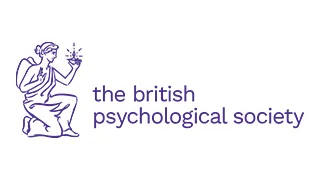About this course
Explore the fascinating worlds of crime, the criminal mind and deviant behaviour. Examine the different, and sometimes contradictory, views on the psychology behind our nature and the choices we make. These are complementary subjects, which often feature in the media and popular culture.
Criminology looks at the origins and patterns of criminality, the justice system and the reasons for committing crime. Psychology examines the mind to try to explain and predict human interaction and behaviour choice.
On this criminology and psychology course, you’ll study:
- criminal behaviour
- victimisation and society's reaction
- the socio-legal context of crime
- the future of social control
You’ll also examine the major views and topics within psychology, including:
- cognitive psychology
- developmental psychology
- social psychology
As part of your degree you can:
- use our research facilities, which include eye-movement recording and virtual reality labs
- examine cyber and international crime
- study abroad for a semester in Brazil, Canada or China
- challenge yourself and help make a difference with our Social Impact Lab
- take specialist modules from other disciplines to unlock a range of career options
The University is also home to the Institute of Criminal Justice. You can take part in seminars, workshops and lectures, and explore the relationships between criminal justice scholarship, research, policy, and practice.
This programme is accredited by the British Psychological Society. It will open the door to further research or careers in public service, criminal justice and beyond.
League table rankings
- Criminology is ranked 4th in the UK according to both the Times University Guide 2026 and the Guardian University Guide 2026.
- Psychology is ranked 9th in the UK according to the Guardian University Guide 2026.
We regularly review our courses to ensure and improve quality. This course may be revised as a result of this. Any revision will be balanced against the requirement that the student should receive the educational service expected. Find out why, when, and how we might make changes.
Our courses are regulated in England by the Office for Students (OfS).
Accreditations
Learn more about these subject areas
Course location
This course is based at Highfield.
Awarding body
This qualification is awarded by the University of Southampton.
Download the Course Description Document
The Course Description Document details your course overview, your course structure and how your course is taught and assessed.
Entry requirements
For Academic year 202627
A-levels
AAB
A-levels additional information
Offers typically exclude General Studies and Critical Thinking.
A-levels with Extended Project Qualification
If you are taking an EPQ in addition to 3 A levels, you will receive the following offer in addition to the standard A level offer: ABB and grade A in the EPQ
A-levels contextual offer
We are committed to ensuring that all applicants with the potential to succeed, regardless of their background, are encouraged to apply to study with us. The additional information gained through contextual data allows us to recognise an applicant's potential to succeed in the context of their background and experience. Applicants who are highlighted in this way will be made an offer which is BBB from 3 A levels.
International Baccalaureate Diploma
Pass, with 34 points overall with 17 points at Higher Level
International Baccalaureate contextual offer
We are committed to ensuring that all learners with the potential to succeed, regardless of their background, are encouraged to apply to study with us. The additional information gained through contextual data allows us to recognise a learner’s potential to succeed in the context of their background and experience. Applicants who are highlighted in this way will be made an offer which is lower than the typical offer for that programme.
International Baccalaureate Career Programme (IBCP) statement
Offers will be made on the individual Diploma Course subject(s) and the career-related study qualification. The CP core will not form part of the offer. Where there is a subject pre-requisite(s), applicants will be required to study the subject(s) at Higher Level in the Diploma course subject and/or take a specified unit in the career-related study qualification. Applicants may also be asked to achieve a specific grade in those elements. Please see the University of Southampton International Baccalaureate Career-Related Programme (IBCP) Statement for further information. Applicants are advised to contact their Faculty Admissions Office for more information.
BTEC
RQF BTEC
D in the BTEC National Extended Certificate plus AA from two A levels
DD in the BTEC National Diploma plus A from one A-level
DDD in the BTEC National Extended Diploma
Additional information
For BTEC Extended Diplomas, we can only consider these subjects along with specific modules:
Health and Social Care but only if you are taking these 3 modules (Psychological Perspectives/Sociological Perspectives/Policy in Health and Social Care),
Forensic and Criminal Investigation (no specific modules needed)
Uniformed Protective Services/Public Services but please check with us which modules you are taking before applying.
We strongly suggest BTEC applicants doing these subjects contact us before applying to check if you are doing the required modules.
For this specific programme we do not accept the NCFE CACHE Technical Level 3 Extended Diploma in Health and Social Care.
QCF BTEC
D in the BTEC Subsidiary Diploma plus AA from two A levels
DD in the BTEC Diploma plus A grade from one A-level
DDD in the BTEC Extended Diploma
Access to HE Diploma
60 credits with a minimum of 45 credits at Level 3, of which 39 must be at Distinction and 6 credits at Merit
Access Offer Contextual
We are committed to ensuring that all learners with the potential to succeed, regardless of their background, are encouraged to apply to study with us. The additional information gained through contextual data allows us to recognise a learner’s potential to succeed in the context of their background and experience. Applicants who are highlighted in this way will be made an offer which is lower than the typical offer for that programme.
Irish Leaving Certificate
Irish Leaving Certificate (first awarded 2017)
H1 H2 H2 H2 H2 H2
Irish Offer Contextual
We are committed to ensuring that all learners with the potential to succeed, regardless of their background, are encouraged to apply to study with us. The additional information gained through contextual data allows us to recognise a learner’s potential to succeed in the context of their background and experience. Applicants who are highlighted in this way will be made an offer which is lower than the typical offer for that programme.
Scottish Qualification
Offers will be based on exams being taken at the end of S6. Subjects taken and qualifications achieved in S5 will be reviewed. Careful consideration will be given to an individual’s academic achievement, taking in to account the context and circumstances of their pre-university education.
Please see the University of Southampton’s Curriculum for Excellence Scotland Statement (PDF) for further information. Applicants are advised to contact their Faculty Admissions Office for more information.
Cambridge Pre-U
D3 D3 M2 in three Principal subjects
Cambridge Pre-U additional information
Cambridge Pre-U's can be used in combination with other qualifications such as A Levels to achieve the equivalent of the typical offer
Cambridge Pre-U Offer Contextual
We are committed to ensuring that all learners with the potential to succeed, regardless of their background, are encouraged to apply to study with us. The additional information gained through contextual data allows us to recognise a learner’s potential to succeed in the context of their background and experience. Applicants who are highlighted in this way will be made an offer which is lower than the typical offer for that programme.
Welsh Baccalaureate
AAB from 3 A levels or AA from two A levels and B from the Advanced Skills Baccalaureate Wales
Welsh Baccalaureate contextual offer
We are committed to ensuring that all learners with the potential to succeed, regardless of their background, are encouraged to apply to study with us. The additional information gained through contextual data allows us to recognise a learner’s potential to succeed in the context of their background and experience. Applicants who are highlighted in this way will be made an offer which is lower than the typical offer for that programme.
T-Level
There are no T levels accepted for this programme.
Other requirements
GCSE requirements
Applicants must hold GCSE English language (or GCSE English) and GCSE Mathematics at a minimum grade of 4/C
Find the equivalent international qualifications for our entry requirements.
English language requirements
If English is not your first language, you must show that you can use English to the level we require. Visit our English language pages to find out which qualifications we accept and how you can meet our requirements.
If you are taking the International English Language Testing System (IELTS), you must get at least the following scores:
IELTS score requirements
- overall score
- 6.5
- reading
- 6.0
- writing
- 6.0
- speaking
- 6.0
- listening
- 6.0
If you do not meet the English language requirements through a test or qualification, you may be able to meet them by completing one of our pre-sessional English programmes before your course starts.
You might meet our criteria in other ways if you do not have the qualifications we need. Find out more about:
- skills you might have gained through work or other life experiences (otherwise known as recognition of prior learning)
Find out more about our Admissions Policy.
Mature applicants
We welcome applications from learners of all ages. Students who are aged 21 and over at the start of their undergraduate course are defined as mature by the University of Southampton. We take a holistic assessment of the application looking for academic ability and commitment to study. Typical entry requirements, which may vary from discipline to discipline, includes for example, evidence of recent formal academic qualifications or professional qualifications, relevant work experience or volunteering. You may also be invited to attend an interview with an Admissions Tutor. For some degree programmes, there may also be a Professional, Statutory and Regulatory Body (PSRB) requirement. We accept many different academic qualifications. For more information, please contact the Admissions Team.
Got a question?
Please contact our enquiries team if you're not sure that you have the right experience or qualifications to get onto this course.
Email: enquiries@southampton.ac.uk
Tel: +44(0)23 8059 5000
Course structure
Each year, you’ll study modules in both criminology and psychology, and specialised modules that span both disciplines.
You’ll take 8 modules per year, which consist of contact time (lectures, seminars, workshops), preparation for classes, and independent study. In years 2 and 3, you can choose optional modules from related disciplines or other faculties. You can even learn a new language.
You can also choose from a range of interdisciplinary modules, including Business Skills, Life in the Cosmos or Understanding Modern China. These are a great opportunity to expand your knowledge and create an impressive CV.
Year 1 overview
You’ll take core and compulsory crime and psychology modules. These will introduce you to criminology and the workings of the criminal justice system, and to some of the most important findings, theories and research in psychology.
You’ll study:
- Introduction to Psychology
- Understanding Everyday Life
- Behavioural Neuroscience
- Criminal Justice Studies
- Individual Differences
- Introduction to Criminology
- Research Methods and Data Analysis
Year 2 overview
You’ll study qualitative and quantitative research methods in detail, and learn about context and policy in criminology.
You’ll also examine:
- Criminological Psychology
- Crime and Criminal Justice: Historical Perspective
- Developmental Psychology
- Language and Memory
You can also choose from optional modules such as:
- Criminology: Policy and Practice
- Perception
- Gender and Society
- Cognitive Neuroscience
Year 3 overview
You’ll put your academic skills into practice with a dissertation that combines psychology with criminology. With help from an experienced supervisor, you'll prepare original research that meets the requirements of the British Psychological Society.
You’ll study law enforcement, social control, and controversial issues like domestic violence and policing minority groups. You’ll also look at current issues in clinical psychology.
The rest of the year’s content consists of optional modules, including:
- The Deserving and Undeserving: Victims and Scroungers in Criminology and Social Policy
- Violent and Sexual Offenders
- Intergroup Relations and Interpersonal Influence
- Globalisation, Inequalities and Power
Want more detail? See all the modules in the course.
Modules
The modules outlined provide examples of what you can expect to learn on this degree course based on recent academic teaching. As a research-led University, we undertake a continuous review of our course to ensure quality enhancement and to manage our resources. The precise modules available to you in future years may vary depending on staff availability and research interests, new topics of study, timetabling and student demand. Find out why, when and how we might make changes.
For entry in academic year 2026 to 2027
Year 1 modules
You must study the following modules in year 1:
Behavioural Neuroscience
The module aims to develop the themes introduced in the Introduction to Psychology Module in semester 1. The module integrates the approaches and findings of biological psychology in an attempt to understand the biological factors that explain why people...
Delivering Justice: Mapping the Criminal Justice System
In this module you will develop an understanding of the England and Wales criminal justice system, with a particular focus on its philosophies, institutional practices and processes and outcomes. You will gain an understanding of how the criminal justice ...
Individual Differences
The course covers the topics of personality and intelligence from the perspective of individual differences. Some research psychologists explore the ways in which people are the same and seek to draw general conclusions about human nature. However...
Interrogating Crime: An Introduction to Criminology
This module provides you with an introduction to the field of criminology including its origins and how subject areas such as sociology and psychology inform criminological study and our understanding of crime. The module explores the different ways in wh...
Introduction to Psychology
Introduction to Psychology will touch on a number of core topics in psychology, including but not limited to the science of psychology, sensation and perception, developmental psychology, health psychology, forensic psychology, and clinical psychology. ...
Simple Liars, Damned Liars and Experts: the use of empirical research in social science
A key skill of a social scientist is to be able to assess the quality of evidence presented based on strong methodological foundations. We need to understand what constitutes evidence, including how it can be produced, agreed, disputed, disseminated and m...
Understanding the Social World
This module lays down the foundations for conducting social research in any discipline within the social sciences, focused around criminology, international relations, politics, population sciences, social policy and sociology. The module will present a r...
What's the problem? Debating responses to Contemporary Social Challenges
The analysis of social problems is a key area of sociological and criminological investigation. However, not all problems experienced by individuals are recognised as social problems by society and not all publicly recognised social problems are also disc...
Year 2 modules
You must study the following modules in year 2:
Criminological Perspectives in Global and Post-colonial Contexts
This module provides you with a critical overview of criminological theory since 1980. It builds on and extends the foundational curriculum which introduced students to the field of criminology.
Criminological Psychology
This module encourages you to take an in-depth look at the way psychology has been used to explain and control crime. We will explore the way psychological principles can be applied to such issues as violence, murder, serial killing and the role of the c...
Current issues in Clinical Psychology
The module will provide an introduction to adult psychopathology, to present the psychological and biological models that have been developed to explain a variety of psychological disorders, and to examine both the empirical foundation of these models and...
Developmental Psychology
This module will develop your understanding and knowledge of development across childhood, adolescence, adulthood, and old age. We will present historical and current research studies and explain how these link to related theoretical frameworks. The mod...
Introduction to Social Data Analytics
This module will develop understanding of how to quantitatively analyse data in the social sciences, building on the foundations from the research methods modules in the first year. It will be focused around the common methods for data analysis that are n...
Qualitative Research: Methods, Tools and Techniques
This module builds on year 1 research methods teaching. It aims to give students a rigorous critical understanding of a broad range of qualitative data collection and data analysis methods. It covers traditional methods such as interviews and focus groups...
What's the Solution? How to Become an Agent for Change in Public Policy
You must also choose from the following modules in year 2:
Children and Society
This module is designed to introduce you to some of the key concepts and debates surrounding children and childhood. It will provide you an opportunity to develop an analytical and critical understanding of the theoretical frameworks, research, policy and...
Crime Scene Investigation: Methods and Applications
Education Policy and Reforms: Global Experiences and Local Contexts
Hardly any country is not undergoing or has not undergone education reforms at various levels today. In that case, how is school-based management implemented similarly or differently in the Philippines and that in Columbia? What are the best ways to suppo...
Intersectional Perspectives on Modernisation Processes
This module is concerned with the development of modern societies and the nature of 'modernity'. It will draw on the writings of contemporary sociologists in order to consider what the most important processes of social change taking place are and how the...
Introduction to Experiments in Social Science
This module introduces the students to the theory and practice of experimental methods in Social Sciences. It delivers an overview of prevalent approaches, specifically lab, field, and survey experiments, providing a solid introduction to experimental met...
Introduction to Health Psychology
This module will introduce students to the discipline of health psychology.
Issues in Law Enforcement and Social Control
This module considers a range of issues in the area of the sociology of the policy and policing and more broadly the sociology of social control - issues, include domestic violence, public order and policing minority groups.
Social Stratification, Divisions and Resilience
This module looks at the changing nature of material, social and cultural inequalities in contemporary societies, how they affect our everyday lives, and how we respond to them.
Techno Harms: Discrimination, Conspiracy Theories and Extremism
This module introduces you to the concept of ‘techno-harms’ from the disciplines of sociology, criminology, and social policy, with a particular focus on zemiology, to investigate the infliction and perpetuation of technologically induced social harms. Th...
Year 3 modules
You must study the following modules in year 3:
Dissertation
Your dissertation will give you an opportunity to conduct a small-scale, independent empirical research project on a topic which you choose relevant to your particular degree programme. Guided by an academic supervisor, you will use appropriate methodolog...
Real World Research: Designing Your Dissertation
This module provides students with the practical foundations for designing and planning the empirical research for their final year dissertation. It does this supported by research insights and examples from staff from their own research experience. The ...
You must also choose from the following modules in year 3:
AI Applications in Psychology
This module will provide an overview of how machine learning and Artificial Intelligence can be used to answer questions in different fields of psychology.
Advanced Quantitative Research Skills
The Advanced Quantitative Research Skills module is focused on extending existing skills in analyzing data from quantitative research. The module consists of two parts. In the first part programming skills in R are being learned. In the second, students w...
Applied Social Quantitative Analysis
This module will develop the skills of the student as a social researcher to conduct in depth analyses of secondary, large scale datasets, leading up to the use of these techniques in the final year dissertations and ensuring that students have appropriat...
Building Digital Health Interventions
This module will provide an overview of how to build a digital health intervention for behaviour change.
Children and Society
This module is designed to introduce you to some of the key concepts and debates surrounding children and childhood. It will provide you an opportunity to develop an analytical and critical understanding of the theoretical frameworks, research, policy and...
Collective Action and Social Change
In this module you will be able to examine a variety of organisations involved in social change, such as governmental and non-governmental organisations, voluntary organisations, social movement organisations and charitable organisations. You will be help...
Comparative Youth Justice
The youth of today' has long been a source of curiosity to older generations, and sociologists and criminologists are no exception to this trend. Over the past 100 years, there have been attempts both to explain society's fascination with the younger gene...
Crime Scene Investigation: Methods and Applications
Current Topics in Cognitive Psychology
This third-year module aims to familiarize students with current topics in cognitive psychology and neuroscience, particularly those that are actively researched at the Centre for Perception and Cognition in the School of Psychology. Through lectures and ...
Developmental Psychopathology
Developmental psychopathology is the study of the developmental processes that lead to psychopathology or impairment in everyday function. As a discipline, it is concerned with the different disorders which have their origins in infancy, childhood or adol...
Education Policy and Reforms: Global Experiences and Local Contexts
Hardly any country is not undergoing or has not undergone education reforms at various levels today. In that case, how is school-based management implemented similarly or differently in the Philippines and that in Columbia? What are the best ways to suppo...
Employability: Successful futures in Sociology and Criminology
This module provides students with the practical foundations for identifying, reflecting and putting into action the key skills and competencies they have gained through their degree and mapping these to real-world postgraduate opportunities. It does this...
Exploring the Hidden Assumptions in Education
Education is closely connected to some of the most profound questions of the human experience and social life more broadly. In this module you are invited on an exciting journey to explore the ethical assumptions, truth claims, and purposes that underlie ...
Gender and Society
The module will introduce perspectives on gender drawn from social theory, and explore contemporary debates about gender and society.
Gender, Power and Politics
How can we understand the role of gender in political systems? Why is it important to acknowledge the intersections of gender with race, class, sexuality and disability? What can/should be done about male over-representation in legislatures worldwide? Why...
Global Terrorism and Political Violence
The module will introduce you to some of the central themes and concepts in the study of terrorism, extremism, and political violence – spanning history, geographies, and the ideological spectrum.
Intersectional Perspectives on Modernisation Processes
This module is concerned with the development of modern societies and the nature of 'modernity'. It will draw on the writings of contemporary sociologists in order to consider what the most important processes of social change taking place are and how the...
Introduction to Educational Psychology
This module aims to provide a descriptive and critical overview of the practice of educational psychology in the UK and to highlight some of the key debates.
Introduction to Experiments in Social Science
This module introduces the students to the theory and practice of experimental methods in Social Sciences. It delivers an overview of prevalent approaches, specifically lab, field, and survey experiments, providing a solid introduction to experimental met...
Issues in Law Enforcement and Social Control
This module considers a range of issues in the area of the sociology of the policy and policing and more broadly the sociology of social control - issues, include domestic violence, public order and policing minority groups.
Penology
Penology is the study of punishment, in prison and in the community. Students are encouraged to think critically about the multiple purposes and debatable effectiveness of our contemporary modes of punishment, and to understand why this 'end product' of t...
Perspectives in Human Animal Interactions
The module will draw on the student’s prior learning with regard to various psychological areas; including but not restricted to, learning theory (operant and classical), attitude, attachment, behaviour change. An introduction to animal behaviour and welf...
Psychology of Advertising
Advertising is an everyday and significant phenomenon. Sponsors hire agencies to inform us about, and persuade us to buy, innumerable branded products and services on the market, though a variety of mass media. Advertisements also urge us to donate to cha...
Race and Ethnicity in Society
This module will explore the issues of race, racism, racial conflict, and race relations in contemporary Britain and worldwide. Although we will mainly refer to Britain, global examples from Europe, the US, the Caribbean, Africa, and South America will b...
Social Stratification, Divisions and Resilience
This module looks at the changing nature of material, social and cultural inequalities in contemporary societies, how they affect our everyday lives, and how we respond to them.
Social and Affective Neuroscience
Social neuroscience supposes that all human behaviour is in some way biological based and proposes that the best way to understand complex social behaviour is through the integration of social and biological approaches. Accordingly, this module will focus...
Social and Psychological Approaches to Understanding Sexual Health
This module will help you to develop graduate attributes, including: - academic attributes – ability to critically appraise knowledge claims based on qualitative and quantitative methods; and - communication skills – ability to communicate research desi...
Techno Harms: Discrimination, Conspiracy Theories and Extremism
This module introduces you to the concept of ‘techno-harms’ from the disciplines of sociology, criminology, and social policy, with a particular focus on zemiology, to investigate the infliction and perpetuation of technologically induced social harms. Th...
Victims or Perpetrators? Social and Psychological Perspectives on Older People and Crime
This module combines the disciplines of social gerontology, social psychology, and sociology to address the intersection of crime and later life, including experiences of crime and criminal behaviour and social responses to these. It encourages students t...
Violent and Sexual Offenders
Would you like to understand why people - mostly men - are violent, or commit rape, or sexually abuse young children? Are people who do such things mentally ill? What might have happened to them in their lives that makes them commit such serious offences...
Learning and assessment
The learning activities for this course include the following:
- lectures
- classes and tutorials
- coursework
- individual and group projects
- independent learning (studying on your own)
Course time
How you'll spend your course time:
Year 1
Study time
Your scheduled learning, teaching and independent study for year 1:
How we'll assess you
- dissertations
- essays
- individual and group projects
- oral presentations
- written exams
Your assessment breakdown
Year 1:
Year 2
Study time
Your scheduled learning, teaching and independent study for year 2:
How we'll assess you
- dissertations
- essays
- individual and group projects
- oral presentations
- written exams
Your assessment breakdown
Year 2:
Year 3
Study time
Your scheduled learning, teaching and independent study for year 3:
How we'll assess you
- dissertations
- essays
- individual and group projects
- oral presentations
- written exams
Your assessment breakdown
Year 3:
Academic support
You’ll be supported by a personal academic tutor and have access to a senior tutor.
Course leader
Michelle Newberry is the course leader.
Careers and employability
Employability skills
This degree will allow you to develop and evidence subject-specific and targeted employability skills. This includes the required skill set for a range of future careers, further study, or starting your own business.
The skills you can expect to focus on and gain from this course include:
- Research
- Critical thinking
- Self-management
- Confidence
- Communication
- Teamwork
- Creativity
- EDI leadership
- Adaptability
- Problem solving
- Resilience
The employability and enterprise skills you'll gain from this course are reflected in the Southampton skills model. When you join us you'll be able to use our skills model to track, plan, and benefit your career development and progress.
Download skills overview
Career pathways
Graduates commonly work in a range of organisations or sectors including:
central and local government careers and counselling services,
commercial and industrial companies,
financial organisations,
human resources departments,
legal firms and organisations providing advice,
local and national government,
marketing companies,
the media,
the NHS,
police forces,
the National Probation Service and prisons,
schools,
sixth form colleges,
colleges of further education and higher education institutions,
social research organisations,
social services,
court services,
security services,
non-profit-making organisations,
charities that work with young offenders or victims of crime,
NHS.
- Education mental health practitioner
- Educational psychologist
- Forensic psychologist
- Occupational psychologist
- Clinical psychologist
- Community development worker
- Crime scene investigator
- Police officer
- Probation officer
- Social worker
- Human resources manager
- Market researcher
- Policy officer
- Psychotherapist
- Social researcher
- Border force officer
- Charity officer
- Housing manager
- Local government officer
- Political risk analyst
- Civil servant
- Digital marketing assistant
- Assistant statistician
- Financial crime analyst
- Pastoral assistant
- Probation officer
- Recruitment consultant
- Teacher of criminology
- Trainee chartered accountant
Job prospects for BSc Criminology and Psychology graduates
*Example graduate job titles and job prospect statistics taken from The Graduate Outcomes Survey, which gathers information about the activities and perspectives of graduates 15 months after finishing their course.

Year in employment
You can apply for a year in employment placement on this course. This is a great way to improve your employability and confidence in your career prospects. Recommended by 100% of students who've taken part, you can apply for a UK or global placement in any sector.
Careers services and support
We are a top 20 UK university for employability (QS Graduate Employability Rankings 2022). Our Careers, Employability and Student Enterprise team will support you. This support includes:
- work experience schemes
- CV and interview skills and workshops
- networking events
- careers fairs attended by top employers
- a wealth of volunteering opportunities
- study abroad and summer school opportunities
We have a vibrant entrepreneurship culture and our dedicated start-up supporter, Futureworlds, is open to every student.
Your career ideas and graduate job opportunities may change while you're at university. So it is important to take time to regularly reflect on your goals, speak to people in industry and seek advice and up-to-date information from Careers, Employability and Student Enterprise professionals at the University.
Fees, costs and funding
Tuition fees
Fees for a year's study:
- UK students pay £9,535.
- EU and international students pay £24,400.
What your fees pay for
Your tuition fees pay for the full cost of tuition and standard exams.
Find out how to:
Accommodation and living costs, such as travel and food, are not included in your tuition fees. There may also be extra costs for retake and professional exams.
Explore:
Bursaries, scholarships and other funding
If you're a UK or EU student and your household income is under £36,200 a year, you may be able to get a University of Southampton bursary to help with your living costs. Find out about bursaries and other funding we offer at Southampton.
If you're a care leaver or estranged from your parents, you may be able to get a specific bursary.
Get in touch for advice about student money matters.
Scholarships and grants
You may be able to get a scholarship or grant to help fund your studies.
We award scholarships and grants for travel, academic excellence, or to students from under-represented backgrounds.
Support during your course
The Student Hub offers support and advice on money to students. You may be able to access our Student Support fund and other sources of financial support during your course.
Funding for EU and international students
Find out about funding you could get as an international student.
How to apply
What happens after you apply?
We will assess your application on the strength of your:
- predicted grades
- academic achievements
- personal statement
- academic reference
We'll aim to process your application within 2 to 6 weeks, but this will depend on when it is submitted. Applications submitted in January, particularly near to the UCAS equal consideration deadline, might take substantially longer to be processed due to the high volume received at that time.
Equality and diversity
We treat and select everyone in line with our Equality and Diversity Statement.
Got a question?
Please contact our enquiries team if you're not sure that you have the right experience or qualifications to get onto this course.
Email: enquiries@southampton.ac.uk
Tel: +44(0)23 8059 5000
Related courses
Criminology and Psychology (BSc) is a course in the Psychology and Sociology, social policy and criminology subject areas. Here are some other courses within these subject areas:





